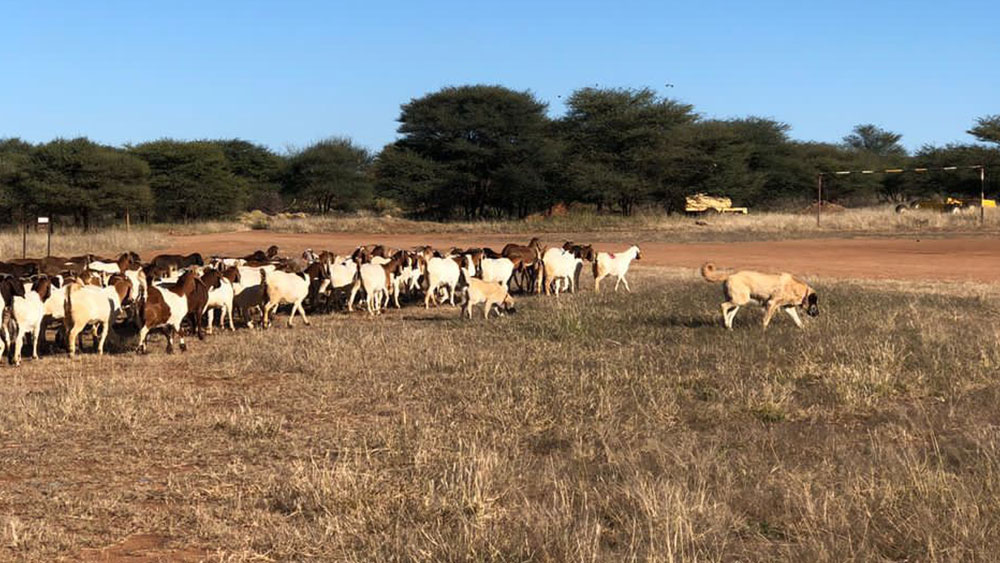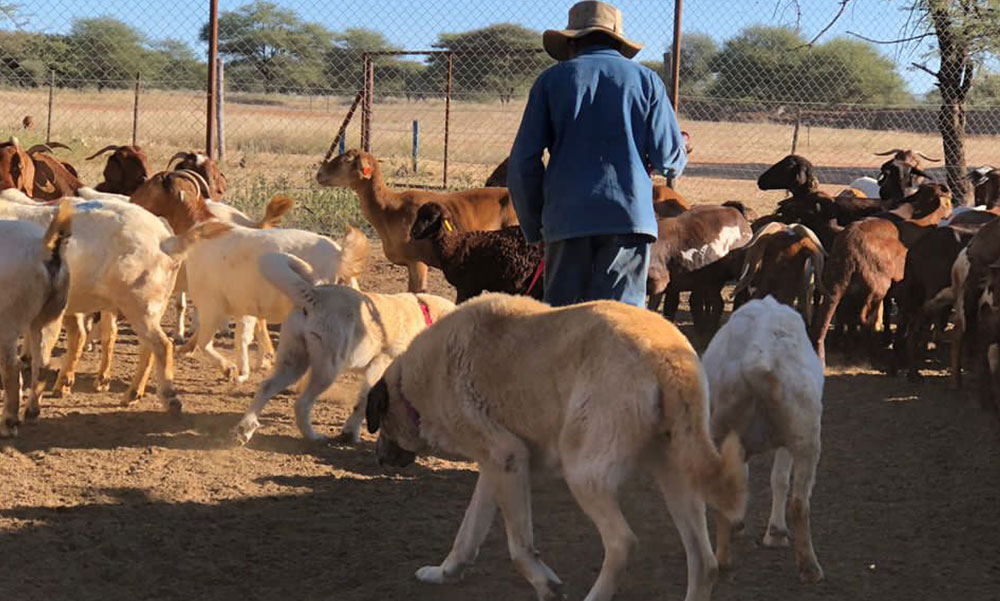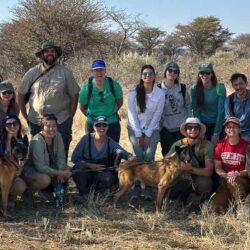Gaining Insights into How Livestock Guarding Dogs Protect Cheetahs
-

- by Brandy Morenko Campbell June 8, 2022

Article Summary of Factors Affecting Livestock Guarding Dogs’ Proximity to Their Herd and Association with Perceived Effectiveness
Authors: Aisha Aslam, Calum O’Flaherty, Laurie Marker, Nicola Rooney
Protecting a herd from predators using livestock guarding dogs has been a practice used by herdsmen for centuries and has been particularly successful in preventing retaliatory killing of cheetahs that prey upon goat and sheep livestock. Livestock are an essential source of income for farmers and crucial for maintaining local economic stability. Consequently, guard dog effectiveness is important in ensuring both the cheetah’s and farmer’s survival.
Researchers collected livestock guarding dog behavior data over a two-year period to get a better understanding of the variables that might affect how well they provide protection against predators such as cheetahs. GPS collars, behavioral observations, and herder reports were used to evaluate performance consistency over the two-year timespan and to examine the effects of temperature, time of day, and vegetation on the dog’s proximity to its herd.

Guard dogs are presumed to be the most effective when they are closest to the herd they are protecting. A guard dog’s day starts early and continues throughout entire day requiring the dogs to work through the heat of the day while traveling through various types of landscapes.
Data analysis showed that individual dogs were found to vary in their proximity to the herd and were often closest at the beginning and end of each day. Dogs were consistent in the distance they kept from the herd over the two years, and they were usually in front of the herd and facing away on the lookout for predators. Their distance from the herd changed daily, but so did the environment as the herd moved across the terrain. Temperature did not seem to impact their distance from the herd. However, as vegetation density increased the dogs got closer.
CCF researchers hope to use the information gathered here to optimize livestock guarding dog performance that adjusts to individual dog differences. By understanding each dog’s patterns and behavior while working, training, and handling strategies can be tailored so that herders can protect their livestock to the best of a dog’s ability.
Related Reading
-
February 27, 2026
In the Footsteps of the Kenyan Cheetah: A Genetic Odyssey -
August 27, 2025
Sniffing Out Stories with the Scat Detection Dog Team




